 MSF/Rowan Pybus
Analysis
MSF/Rowan Pybus
Analysis
07/22/2020
Marc Le Pape
In France, from March onwards, many sociologists regularly appear in the media. Based on this observation, Marc Le Pape analysed 37 articles written during the containment period, dealing with the Covid-19 pandemic.
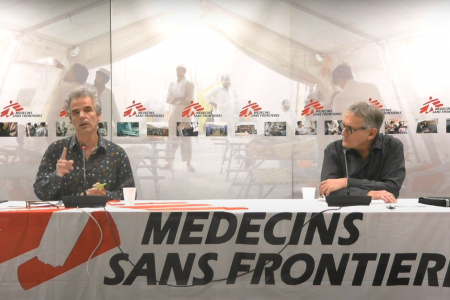 Conference
Conference
10/08/2020 - 06:00 PM 08:00 PM
Pierre Chirac
The Crash team was delighted to welcome Pierre Chirac, pharmacist and editor of the magazine Prescrire, for a conference on his analysis of the pharmaceutical industry's influence strategies and the special interests of university hospital researchers, their consequences on the reliability of drug information and the means now required to rectify a harmful situation. This meetting was prepared and moderated by Rony Brauman.
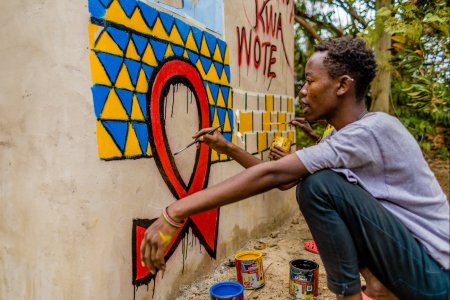 Bryan Jaybee
Cahier
Bryan Jaybee
Cahier
06/09/2020
Xavier Plaisancie
This study, conducted among the men of Homa Bay in Nyanza Province, Kenya, assesses the representations of HIV and impact on care seeking. It reveals that simply setting up a testing or care campaign does not necessarily mean that the entire population will participate; the message has to be tailored to the target population and fine-tuned even within that population.
 Eric Bouvet
Interview
Eric Bouvet
Interview
05/11/2020
Emmanuel Baron
Elba Rahmouni
Crisis situation, response strategies, hydroxychloroquine, interventional epidemiology and the state of scientific research in Africa: Elba Rahmouni interviews Emmanuel Baron, Director of Epicentre, Médecins Sans Frontières
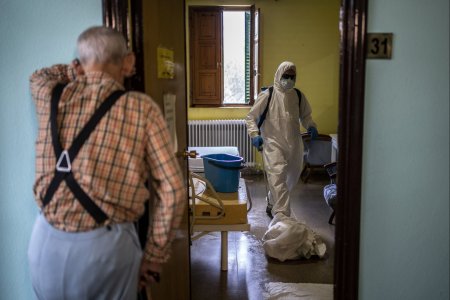 Olmo Calvo/MSF
Opinion
Olmo Calvo/MSF
Opinion
05/10/2020
Jean-Hervé Bradol
The biggest oversight in the response to this epidemic has been the EHPADs. For the staff, the directive was clear: continue to work and provide an alternative to hospitalisation. No matter the conditions. For the residents, it was to die alone without treatment to alleviate their suffering.
 Eric Bouvet
Interview
Eric Bouvet
Interview
05/11/2020
Emmanuel Baron
Elba Rahmouni
Crisis situation, response strategies, hydroxychloroquine, interventional epidemiology and the state of scientific research in Africa: Elba Rahmouni interviews Emmanuel Baron, Director of Epicentre, Médecins Sans Frontières
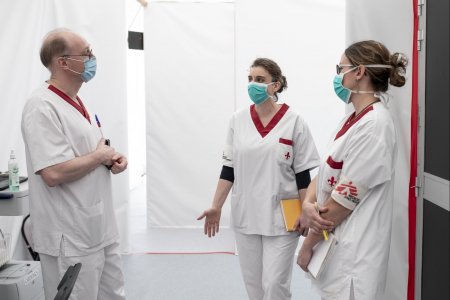 Pablo Garrigos/MSF
Interview
Pablo Garrigos/MSF
Interview
04/06/2020
Jean-Hervé Bradol
Elba Rahmouni
In exceptional circumstances where the demand for care exceeds the supply, how do you decide who to start with? Triage is necessary where there is exceptional demand, leading to the use of a specific procedure to establish priorities. Interview of Jean-Hervé Bradol conducted by Elba Rahmouni based on the article “In a disaster situation: get your bearings, triage and act” published in the book La médecine du tri. Histoire, éthique, anthropologie edited by Céline Lefève, Guillaume Lachenal and Vinh-Kim Nguyen.
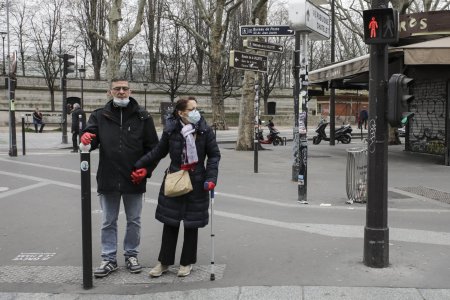 Aurelie Baumel/MSF
Interview
Aurelie Baumel/MSF
Interview
03/17/2020
Jean-Hervé Bradol
Confronted with a "totally unprecedented biological, social and political event", Jean-Hervé Bradol spoke with Mediapart about the difficulties of basing all prevention on behavioural measures: "It takes time for a society to fully acknowledge the existence of the event, which is unfolding as it tries to understand it.”
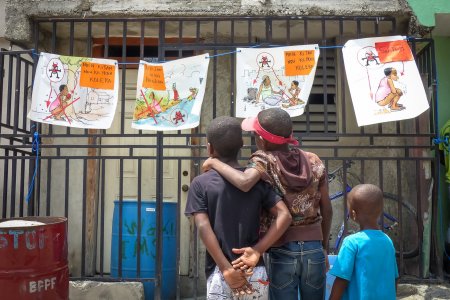 MSF/Lauranne Grégoire
Review
MSF/Lauranne Grégoire
Review
12/23/2019
Rony Brauman
The cholera outbreak in Haiti in October 2010 was among the deadliest in modern history, with 800,000 people infected and 10,000 fatalities. And these are just the official figures. The actual death toll was far higher, as evidenced by numerous retrospective mortality surveys, and can only be expressed as an order of magnitude: to wit, several tens of thousands.
This book recounts eight years of struggle on two fronts that the author shows to be closely linked: the field, with the implementation of measures of prevention and case management; the scientific debate, in the form of a shattering of the dominant environmental theory concerning the origin of the epidemic.
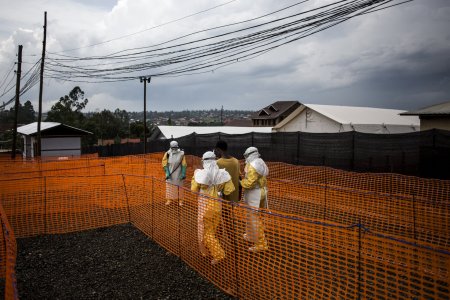 John Wessels
Interview
John Wessels
Interview
09/10/2019
Jean-Hervé Bradol
Elba Rahmouni
On August 1st 2018, the Democratic Republic of Congo’s health authorities declared the country’s tenth outbreak of Ebola virus disease (EVD), this time in North Kivu province. Just over a year later, this outbreak is still ongoing, with several dozen new cases reported each week. In the space of 12 months, 3000 people contracted the disease and 2000 of them have since died. This latest outbreak can be seen as a failure at two levels: first, it is already the second biggest EVE outbreak ever recorded, and second, two out of three patients have died. What are the reasons for this failure? What operational strategies should we develop in response?
Interview with Jean-Hervé Bradol, Director of studies at CRASH, by Elba Rahmouni.
 Analysis
Analysis
02/15/2019
Hannah BARNETT
The study The Patient Perspective of Quality of Care: A Review of the Literature, which we present here was carried out by Hannah Barnett a public health student at George Washington University, intern with CRASH from June to August 2018. This work sums up seventy articles from a variety of disciplines including medicine and public health. It is part of a reflection initiated by MSF a few years ago on medical quality and the patient-centered approach.
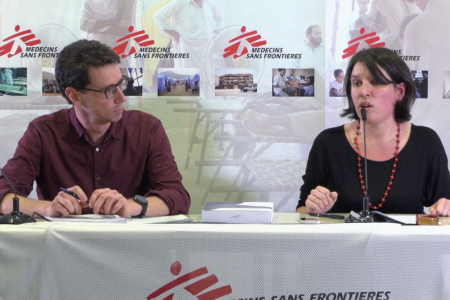 Conference
Conference
12/17/2018 - 06:00 PM 08:00 PM
Caroline Izambert
The CRASH team invited you to the debate-conference “Healing foreigners in France: The State and the civil society organisations from the 80s to the 90s” on Monday 17th of December 2018. We hosted Caroline Izambert, who recently defended, at the EHESS, her PhD thesis focusing on the foreigners’ access to healthcare in France. Her title: “Heal foreigners?” The State and the civil society organisations for the health coverage of the poor and foreigners in France from the 1980s to the present day. This conference was prepared and moderated by Michaël Neuman.
 MSF/Rowan Pybus
Analysis
MSF/Rowan Pybus
Analysis











